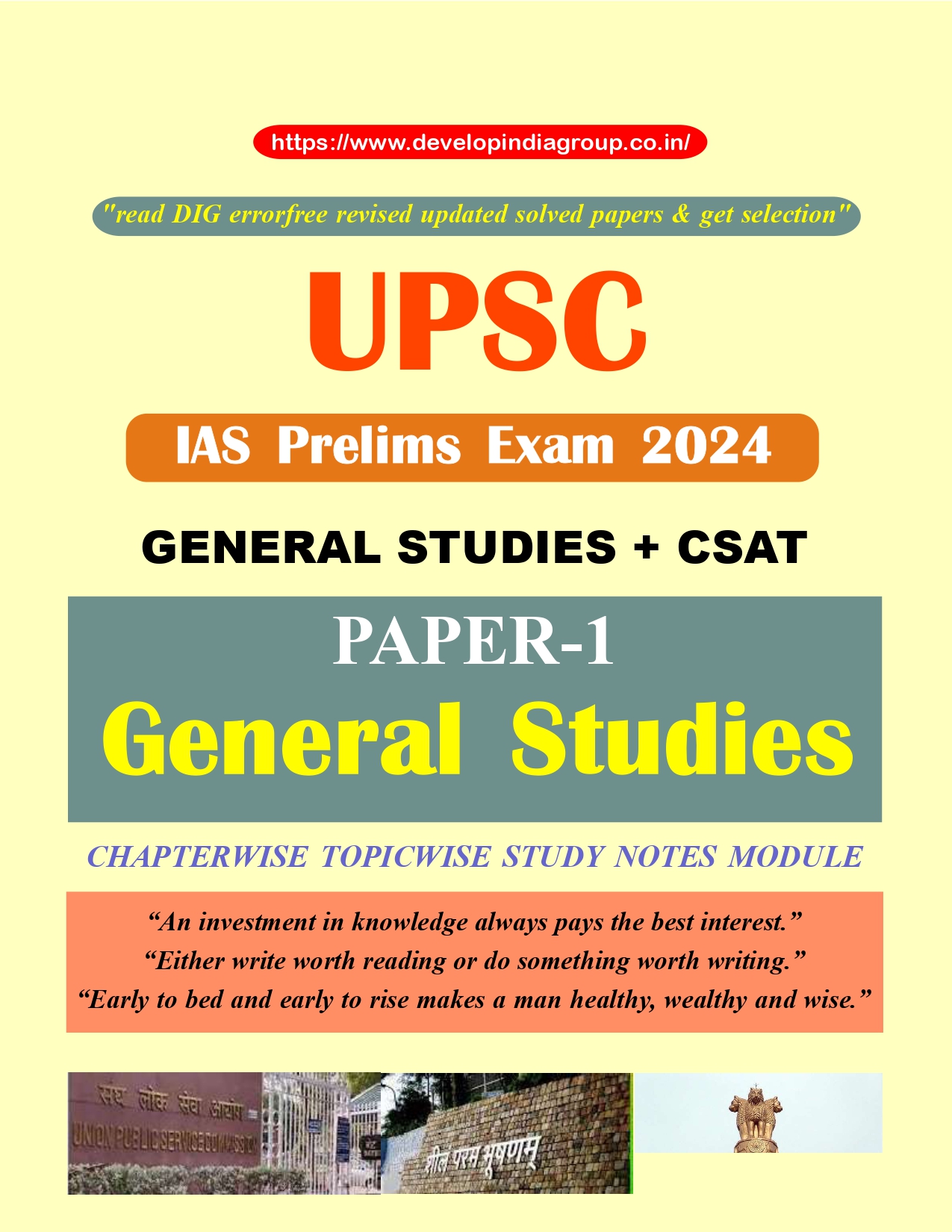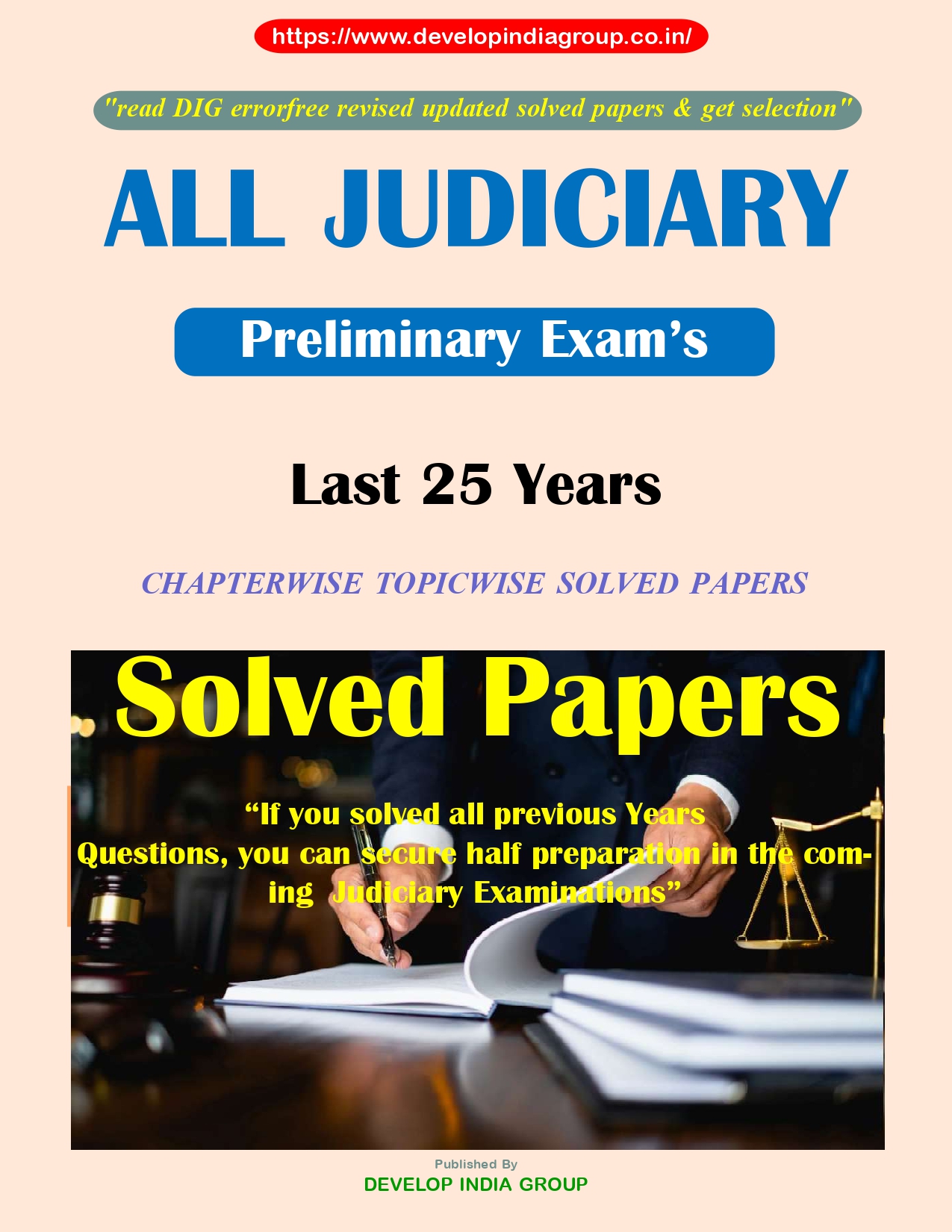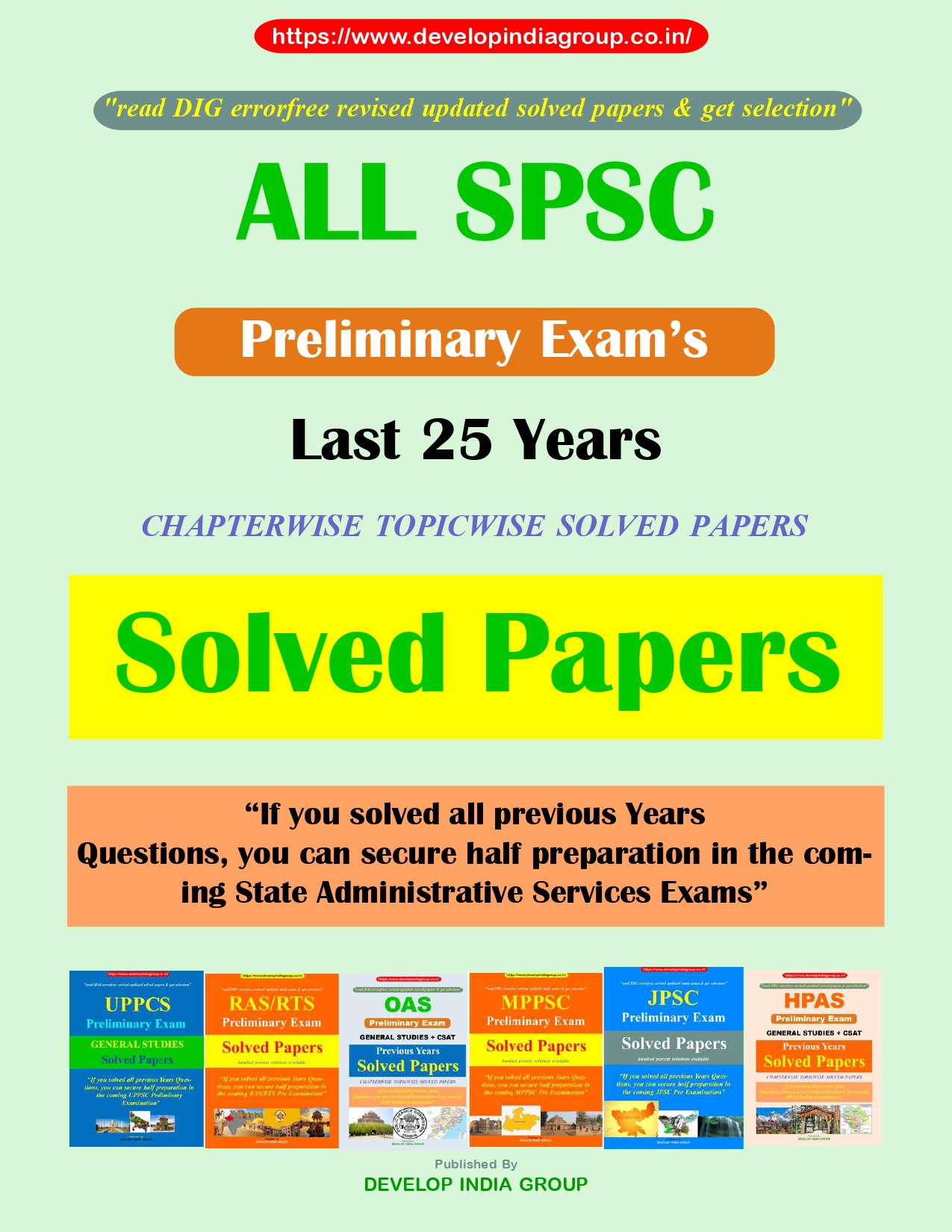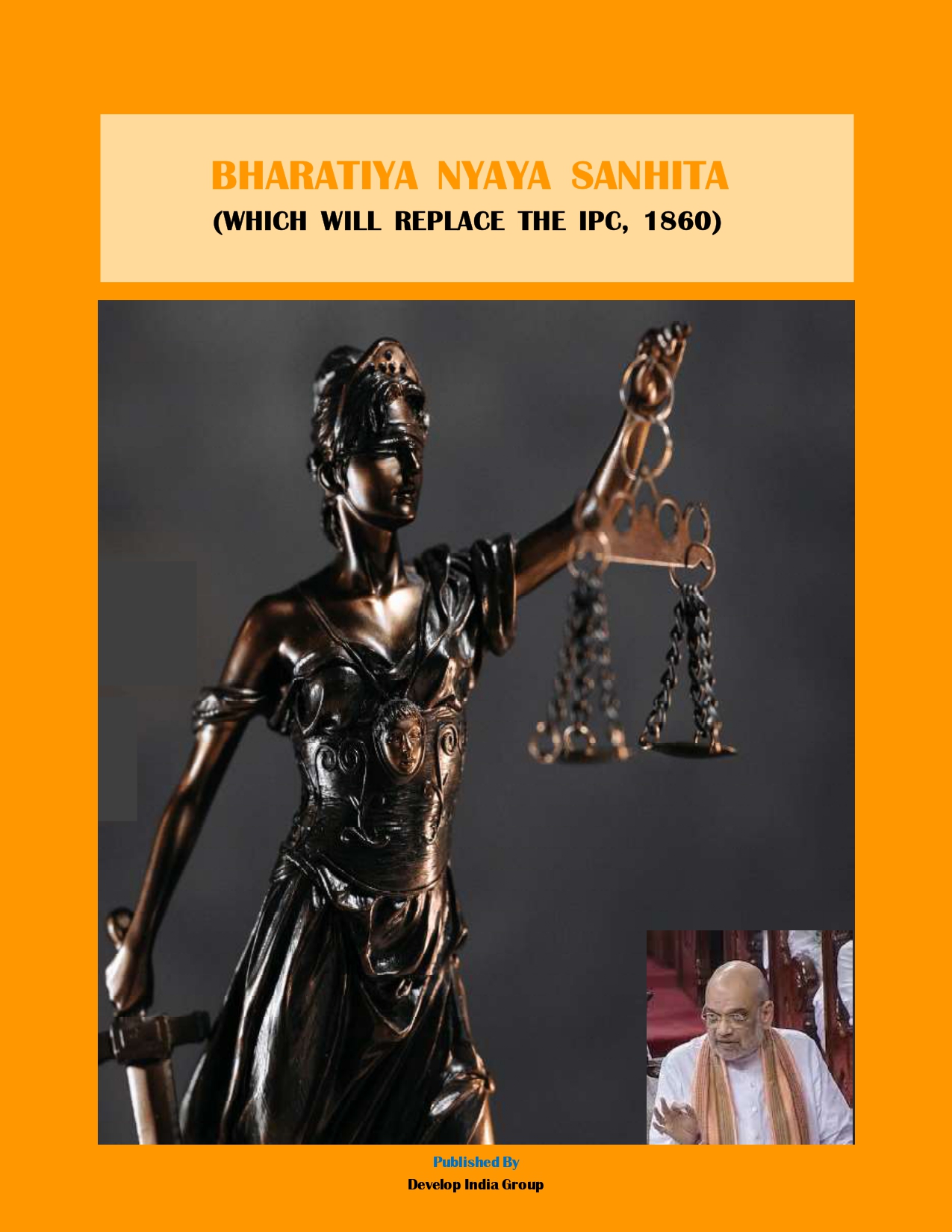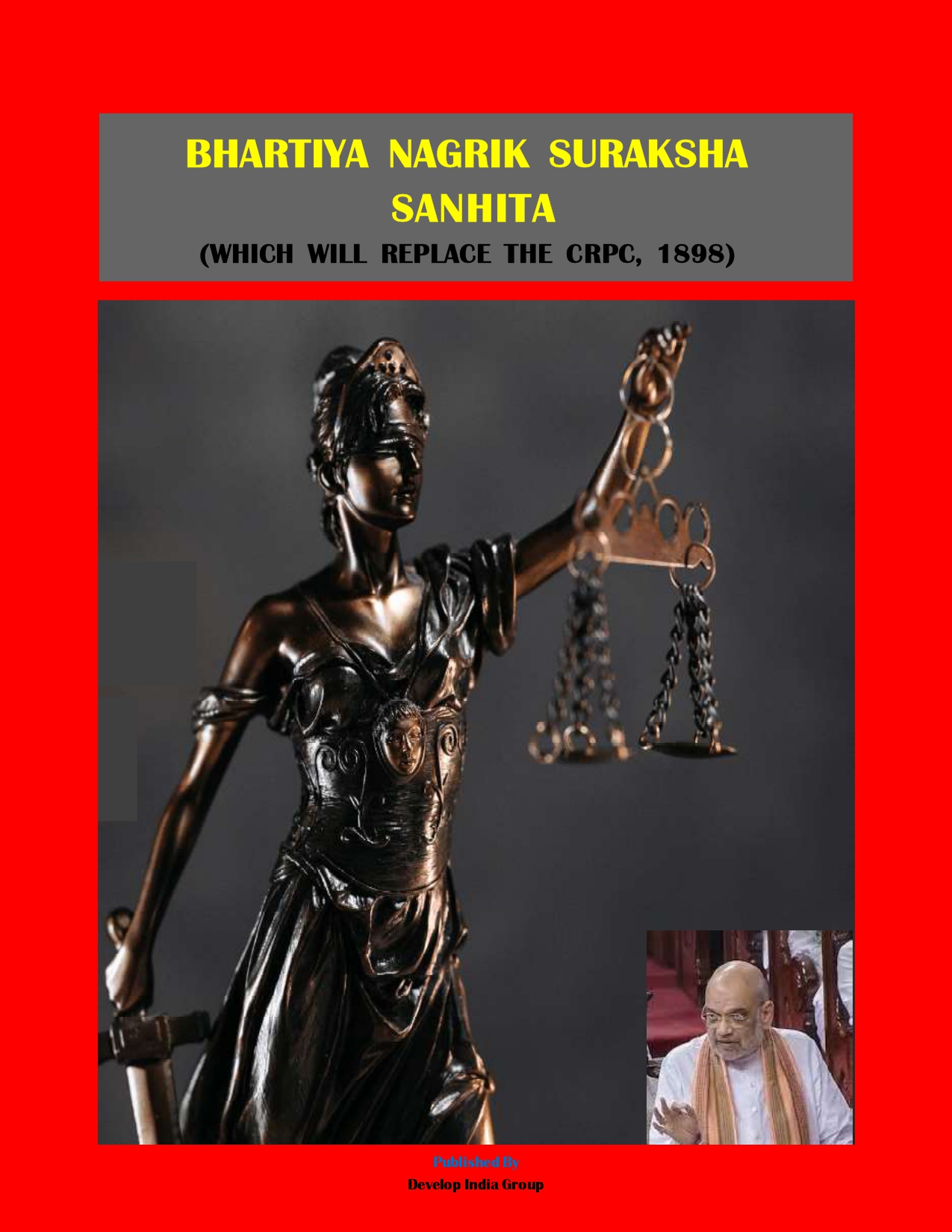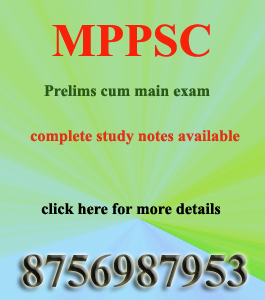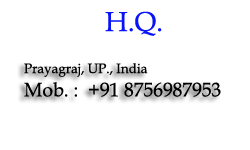

| State Level Govt. Exams |
|---|
| Crash Courses |
|---|
| Chapterwise Study Material & Notes |
|---|
| Books / eBooks |
|---|
| Mock Tests Series |
|---|
| Free Video Leaning Programe (VLP) |
|---|
BUY Online Study Materials/Notes |
|---|
| Practice Sets |
|---|
| Je & Ae Exams |
|---|
| Coaching for Schools Students (K-12) |
|---|
| NCERT Solutions |
|---|
| Quick Links |
|---|
On 17 April 2024 the Union Public Service Commission (UPSC) has released the results of the Civil Service Exam 2023 with 1,016 candidates being recommended for different central government services on its official website upsc.gov.in.
Aditya Srivastava topped the prestigious civil services examination 2023, with Animesh Pradhan and Donuru Ananya Reddy getting the second and third ranks respectively.
Rank |
Candidate Name |
Educational Qualification |
Institute |
Optional Subject |
1 |
ADITYA SRIVASTAVA |
B Tech. in Electrical Engineering |
IIT Kanpur |
Electrical Engineering |
2 |
ANIMESH PRADHAN |
B Tech. in Computer Science |
NIT Rourkela |
Sociology |
3 |
DONURU ANANYA REDDY |
B.A. (Hons.) Geography |
Miranda House, Delhi University |
Anthropology |
4 |
P K SIDHARTH RAMKUMAR |
B. Arch. |
College of Architecture, Thiruvananthapuram |
Anthropology |
5 |
RUHANI |
B.A. (Hons) Economics |
St Stephens College, Delhi University |
Economics |
As per the Commission, 5,92,141 candidates appeared in the Preliminary examination that was held on May 28, 2023. A total of 14,624 candidates qualified for appearance in the Written (Main) Examination that was held in September 2023 and a total of 2,855 candidates qualified for the Personality Test of the examination.
A total of 1016 candidates (664 men and 352 women) have been recommended by the Commission for appointment to various Services and the top 25 candidates comprise 10 women and 15 men. Among the top 5 candidates, three are men and two are women candidates.
The following are the top 5 candidates who topped UPSC CSE 2023 and their educational qualifications.
Prime Minister Narendra Modi on 17 April 2024 congratulated successful candidates of the Union Public Service Commission (UPSC) Civil Services Examination shortly after the results were announced. In a social media post, PM Modi said..
“I congratulate all those who have successfully cleared the Civil Services Examination, 2023. Their hard work, perseverance and dedication has paid off, marking the start of a promising career in public service.
“I want to tell those who didn’t achieve the desired success in the Civil Services Examination- setbacks can be tough, but remember, this isn't the end of your journey. There are chances ahead to succeed in Exams, but beyond that, India is rich with opportunities where your talents can truly shine. Keep striving and exploring the vast possibilities ahead.
Civil Services examinations are competitive exams conducted by the Union Public Service Commission (UPSC) of India to recruit candidates for various civil service positions in the government of India. These exams are widely considered to be one of the toughest exams in India, with a rigorous selection process that tests candidates on their knowledge, aptitude, and leadership skills.
The Civil Services Prelims (CSP) 2024 exam is scheduled to be held on 26 May 2024.
The Civil Services Exam is conducted annually in three stages -- preliminary, main and interview -- by the UPSC to select officers of Indian Administrative Service (IAS), Indian Foreign Service (IFS) and Indian Police Service (IPS), among others.
The Preliminary exam is a qualifying exam that tests the candidate's basic knowledge and understanding of various subjects, while the Main exam is an in-depth evaluation of the candidate's knowledge, aptitude, and leadership skills.
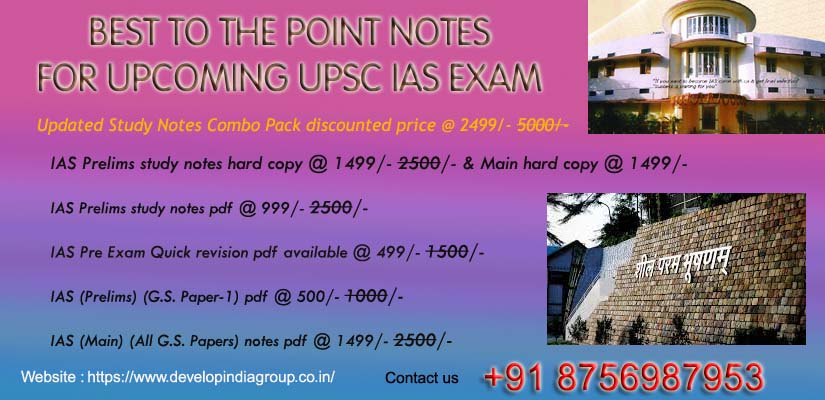 |
IAS Exam 2024 Chapterwise Study Materials availablein English & Hindi medium "DIG Study Materials are highly used & recommended by UPSC Toppers"Boost your UPSC CSE Mains Marks : Join DIG Writing Skill Course Pay us via gpay or phonepe or Paytm on 8756987953 Plz shared your postal address (for hard copy); |
Complete Study Material for UPSC Civil Services IAS/ IPS Prelim & Main General Studies, Essay, Ethics & Integrity Exams (set of 50+ Books) with pre and main Solved Question Papers available only @ 5000/- |
| Chapterwise Study Materials in hard copy (Hindi/Eng) |
IAS Exam 2024 hard copy combo pack @ 5000/- IAS Prelims Exam 2024 study notes hard copy @ 2500/- IAS Main Exam 2024 study notes hard copy @ 2500/- |
| ebook pdf study materials (Hindi/Eng) |
IAS Exam 2024 pdf for combo pack @ 3000/- IAS Prelims Exam 2024 study notes pdf @ 1000/- IAS Main Exam 2024 study notes pdf @ 1500/- |
| Crash Course |
UPSC IAS Pre Exam 2024 Crash Course pdf @ 1500/- UPSC IAS Main Exam 2024 Crash Course pdf @ 2000/- |
| Topicwise Notes pdf for IAS Exam (Hindi/Eng) |
IAS (Prelims) Exam 2024 (G.S. Paper-1) pdf @ 500/- IAS (Prelims) Exam 2024 (G.S. Paper-2) pdf @ 500/- IAS (main) Exam 2024 (G.S. Paper-1) pdf @ 300/- IAS (main) Exam 2024 (G.S. Paper-2) pdf @ 300/- IAS (main) Exam 2024 (G.S. Paper-3) pdf @ 300/- IAS (main) Exam 2024 (G.S. Paper-4) pdf @ 300/- |
| IAS exam test series (Hindi/Eng) |
IAS (Prelims) Exam 2024 (G.S. Paper-1) test series pdf @ 500/- IAS (Prelims) Exam 2024 (G.S. Paper-2) test series pdf @ 500/- IAS (main) Exam 2024 (G.S. Paper-1) test series pdf @ 200/- IAS (main) Exam 2024 (G.S. Paper-2) test series pdf @ 200/- IAS (main) Exam 2024 (G.S. Paper-3) test series pdf @ 200/- IAS (main) Exam 2024 (G.S. Paper-4) test series pdf @ 200/- |
| IAS exam solved papers (Hindi/Eng) |
IAS (Prelims) (G.S. Paper-1) solved paper pdf @ 300/- IAS (Prelims) (G.S. Paper-1) solved paper pdf @ 200/- IAS (main) (G.S. Paper-1) solved paper pdf @ 200/- IAS (main) (G.S. Paper-2) solved paper pdf @ 200/- IAS (main) (G.S. Paper-3) solved paper pdf @ 200/- IAS (main) (G.S. Paper-4) solved paper pdf @ 200/- |
Benefits of the Study Materials
|
| Important links |
|
UPSC Syllabus Overview
| UPSC Pre Exam Pattern | General Studies I | General Studies II or CSAT |
| Number of questions | 100 | 80 |
| Negative Marking | Yes (1/3rd of the maximum marks for the question)
-0.66 marks for every incorrect answer |
Yes (1/3rd of the maximum marks for the question)
-0.83 marks for every incorrect answer |
| Timing | 2 hours | 2 hours |
| Language of exam | English/Hindi | English/Hindi |
| Maximum marks | 200 | 200 |
| Cut Off marks | 70+ questions expected | 33% qualifying criteria (66 marks) |
UPSC Prelims Syllabus
UPSC Prelims Syllabus: There are certain topics that have a high weightage and questions are repeatedly asked about such topics. Candidates are advised to go through the IAS Prelims Syllabus 2023 before strategizing their preparation. Candidates can check for UPSC Prelims 2023 Syllabus here.
UPSC Prelims Syllabus for General Studies (Paper I)
- Current events of National & International importance.
- History of India & Indian National Movement.
- Indian & World Geography – Physical, Social, Economic Geography of India & the World.
- Indian Polity & Governance – Constitution, Political System, Panchayati Raj, Public Policy, Rights Issues, etc.
- Economic & Social Development – Sustainable Development, Poverty, Inclusion, Demographics, Social Sector Initiatives, etc.
- General issues on Environmental ecology, Bio-diversity & climate change – that do not require subject specialization.
- General Science.
UPSC Prelims Syllabus for CSAT (Paper-II)
- Interpersonal skills including communication skills.
- Logical reasoning & analytical ability.
- Decision-making & problem-solving.
- General mental ability.
- Basic numeracy and data interpretation.
- Comprehension
UPSC Mains Syllabus
The UPSC Mains Syllabus is an extensive framework that covers a wide range of subjects and topics. It is designed to assess the comprehensive knowledge and understanding of candidates in various disciplines. The UPSC mains syllabus includes subjects like Essay Writing, General Studies (GS) Papers I to IV, and Optional Subjects chosen by the candidates.
UPSC Mains Exam consist of 9 papers of conventional and descriptive type format. Out of which two papers (General English and Hindi) will be of qualifying in nature. The details of the UPSC Mains syllabus have been meticulously dealt with in this section. Do read it to have a comprehensive understanding of this phase of the examination.
UPSC Mains Syllabus for Language Paper
The UPSC Mains Syllabus for Language Paper is designed to assess candidates’ proficiency and understanding of language and literature. This paper is meant to evaluate the candidate’s ability to express themselves effectively and coherently in the chosen language.
1. UPSC Mains Syllabus for the English Language
Here is the UPSC Civil Services Syllabus for the English Language:
- Comprehension of given passages.
- Precis Writing.
- Usage and Vocabulary.
- Short Essays.
2. UPSC Mains Syllabus for Indian Languages
Here is the UPSC IAS Syllabus for Indian Languages:
- Comprehension of given passages.
- Precis Writing.
- Usage and Vocabulary.
- Short Essays.
- Translation from English to the Indian Language and vice-versa.
UPSC Mains Syllabus for Essay Paper
The UPSC IAS Syllabus for Essay Paper consists of various topics of the entire UPSC IAS Syllabus. Candidates may be required to write essays on multiple topics. They will be expected to keep close to the subject of the essay to arrange their ideas in an orderly fashion and to write concisely. Credit will be given for effective and exact expression.
UPSC Mains Syllabus for General Studies I
The UPSC IAS Syllabus for General Studies I consists of Indian Heritage and Culture, History and Geography of the World, and Society. Below is a detailed explanation of the UPSC IAS Syllabus for General Studies I.
- Indian culture will cover the salient aspects of Art Forms, literature, and Architecture from ancient to modern times.
- Modern Indian history from about the middle of the eighteenth century until the present- significant events, personalities, and issues.
- The Freedom Struggle, its various stages, and important contributors/contributions from different parts of the country.
- Post-independence consolidation and reorganization within the country.
- History of the world will include events from the 18th century such as the industrial revolution, world wars, redrawing of national boundaries, colonization, decolonization, political philosophies like communism, capitalism, socialism, etc., and their forms and their effect on society.
- Salient features of Indian Society, Diversity of India.
- Role of women and women’s organization, population and associated issues, poverty and developmental issues, urbanization, their problems, and their remedies.
- Effects of globalization on Indian society.
- Social empowerment, communalism, regionalism & secularism.
- Salient features of the world’s physical geography.
- Distribution of key natural resources across the world (including South Asia and the Indian sub-continent); factors responsible for the location of primary, secondary, and tertiary sector industries in various parts of the world (including India).
- Important Geophysical phenomena such as earthquakes, tsunamis, Volcanic activity, cyclones, etc., geographical features and their location changes in critical geographical features (including water-bodies and ice-caps) and in flora and fauna and the effects of such changes.
UPSC Mains Syllabus for General Studies II
The UPSC IAS Syllabus for General Studies II consists of Governance, Constitution, Polity, Social Justice, and International Relations. Below is a detailed explanation of the UPSC IAS Syllabus for General Studies II:
- Indian Constitution—historical underpinnings, evolution, features, amendments, significant provisions, and basic structure.
- Functions and responsibilities of the Union and the States, issues and challenges pertaining to the federal structure, devolution of powers and finances up to local levels, and challenges therein.
- Separation of powers between various organs disputes redressal mechanisms and institutions.
- Comparison of the Indian constitutional scheme with that of other countries.
- Parliament and State legislatures—structure, functioning, conduct of business, powers & privileges, and issues arising out of these.
- Structure, organization, and functioning of the Executive and the Judiciary—Ministries and Departments of the Government; pressure groups and formal/informal associations and their role in the Polity.
- Salient features of the Representation of People’s Act.
- Appointment to various Constitutional posts, powers, functions, and responsibilities of various Constitutional Bodies.
- Statutory, regulatory, and various quasi-judicial bodies.
- Government policies and interventions for development in various sectors and issues arising out of their design and implementation.
- Development processes and the development industry —the role of NGOs, SHGs, various groups and associations, donors, charities, institutional and other stakeholders.
- Welfare schemes for vulnerable sections of the population by the Centre and States and the performance of these schemes; mechanisms, laws, institutions, and Bodies constituted for the protection and betterment of these vulnerable sections.
- Issues relating to the development and management of Social Sector/Services relating to Health, Education, and Human Resources.
- Issues relating to poverty and hunger.
- Important aspects of governance, transparency and accountability, e-governance- applications, models, successes, limitations, and potential; citizens charters, transparency & accountability, and institutional and other measures.
- Role of civil services in a democracy.
- India and its neighborhood- relations.
- Bilateral, regional, and global groupings and agreements involving India and/or affecting India’s interests.
- Effect of policies and politics of developed and developing countries on India’s interests, Indian diaspora.
- Important International institutions, agencies, and fora – their structure, mandate.
UPSC Mains Syllabus for General Studies III
The UPSC IAS Syllabus for General Studies III consists of Technology, Economic Development, Bio diversity, Environment, Security, and Disaster Management. Below is a detailed explanation of the UPSC IAS Syllabus for General Studies III:
- Indian Economy and issues relating to planning, mobilization, of resources, growth, development, and employment.
- Inclusive growth and issues arising from it.
- Government Budgeting.
- Major crop-cropping patterns in various parts of the country, – different types of irrigation and irrigation systems storage, transport, and marketing of agricultural produce and issues and related constraints; e-technology in the aid of farmers.
- Issues related to direct and indirect farm subsidies and minimum support prices; Public Distribution System-objectives, functioning, limitations, revamping; issues of buffer stocks and food security; Technology missions; economics of animal-rearing.
- Food processing and related industries in India- scope’ and significance, location, upstream and downstream requirements, supply chain management.
- Land reforms in India.
- Effects of liberalization on the economy, changes in industrial policy, and their effects on industrial growth.
- Infrastructure: Energy, Ports, Roads, Airports, Railways, etc.
- Investment models.
- Science and Technology- developments and their applications and effects in everyday life.
- Achievements of Indians in science & technology; indigenization of technology and development of new technology.
- Awareness in the fields of IT, Space, Computers, robotics, Nano-technology, biotechnology, and issues relating to intellectual property rights.
- Conservation, environmental pollution, and degradation, environmental impact assessment.
- Disaster and disaster management.
- Linkages between development and spread of extremism.
- Role of external state and non-state actors in creating challenges to internal security.
- Challenges to internal security through communication networks, the role of media and social networking sites in internal security challenges, basics of cyber security; money laundering, and its prevention.
- Security challenges and their management in border areas – linkages of organized crime with terrorism.
- Various Security forces and agencies and their mandate.
UPSC Mains Syllabus for General Studies IV
The UPSC IAS Syllabus for General Studies IV consists of Ethics, Integrity, and Aptitude. Below is a detailed explanation of the UPSC IAS Syllabus for General Studies IV:
This paper will include questions to test the candidates’ attitudes and approaches to issues relating to integrity, probity in public life, and problem-solving approach to various issues and conflicts faced by him in dealing with society. Questions may utilize the case study approach to determine these aspects. The following broad areas will be covered:
- Ethics and Human Interface: Essence, determinants, and consequences of Ethics in human actions; dimensions of ethics; ethics – in private and public relationships. Human Values – lessons from the lives and teachings of great leaders, reformers, and administrators; the role of family society and educational institutions in inculcating values.
- Attitude: content, structure, function; its influence and relation with thought and behavior; moral and political attitudes; social influence and persuasion.
- Aptitude and foundational values for Civil Service, integrity, impartiality and non-partisanship, objectivity, dedication to public service, empathy, tolerance, and compassion towards the weaker sections.
- Emotional intelligence concepts, and their utilities and application in administration and governance.
- Contributions of moral thinkers and philosophers from India and the world.
- Public/Civil service values and Ethics in Public administration: Status and problems; ethical concerns and dilemmas in government and private institutions; laws, rules, regulations, and conscience as sources of ethical guidance; accountability and ethical governance; strengthening of ethical and moral values in governance; ethical issues in international relations and funding; corporate governance.
- Probity in Governance: Concept of public service; Philosophical basis of governance and probity; Information sharing and transparency in government, Right to Information, Codes of Ethics, Codes of Conduct, Citizen’s Charters, Work culture, Quality of service delivery, Utilization of public funds, challenges of corruption.
- Case Studies on the above issues.
UPSC Mains Syllabus for Optional Subjects
The UPSC IAS Syllabus has Optional Subject Papers I & II. Here you have to choose any one subject from the list and the subject will have two papers.
- Agriculture
- Animal Husbandry and Veterinary Science
- Anthropology
- Botany
- Chemistry
- Civil Engineering
- Commerce and Accountancy
- Economics
- Electrical Engineering
- Geography
- Geology
- History
- Law
- Management
- Mathematics
- Mechanical Engineering
- Medical Science
- Philosophy
- Physics
- Political Science and International Relations
- Psychology
- Public Administration
- Sociology
- Statistics
- Zoology
Preparation Strategy for UPSC Prelims
The Civil Services Prelims (CSP) 2024 exam is scheduled to be held on 26 May 2024.
The following strategy will help candidates to score well in the exam.
- Current Affairs are an important part of UPSC Prelims. Ideally, candidates should prepare 12 to 15 months’ worth of current affairs.
- Important sources for current affairs preparation for UPSC exam 2023 are:
- Yojana Magazine
- Newspapers (The Hindu/The Indian Express)
- PRS
- Press Information Bureau (PIB)
- Economic and Political Weekly (EPW)
- However, if you are pressed for time, BYJU’S free IAS preparation provides:
- PRS
- The gist of Yojana
- The gist of EPW
- Develop India Englis weekly
- Indian Express daily
- Daily video analysis of The Hindu
- Economy This Week for UPSC Preparation
- Candidates should prepare for UPSC Prelims and UPSC Mains simultaneously as there is a syllabus overlap. Check the complete IAS Syllabus 2023.
- For more Previous Years’ UPSC exam question papers, you can refer to the link.
- For CSAT or General Studies Paper-II in UPSC Prelims, go through the previous years’ question papers to gauge your level. As such, there is not much preparation needed for CSAT, however, only you can take that call. For complete information on CSAT including books, strategy and trend analysis, refer to the link.
- Making Notes for the UPSC Prelims and Mains is a must. Having notes in your own handwriting is preferred by some candidates, however, considering the time constraint, we have given links for important notes from NCERTs and BYJU’S classroom notes for IAS Prelims.
- NCERT notes – Ancient Indian History for UPSC Prelims
- NCERT notes – Medieval History of India for UPSC Prelims
- NCERT notes – Modern Indian History and Indian National Movement for UPSC Prelims
- NCERT notes – Art, culture, and architecture for UPSC Prelims
- NCERT notes – Geography (Physical) notes for UPSC Prelims
- As the questions in UPSC Prelims are all objective-type, it is essential to practice solving MCQs during the preparation. Here, we have given a list of MCQs for different subjects for UPSC Prelims 2023.
- DIG MCQs on Polity for UPSC Prelims
- DIG MCQs on Indian Economy for UPSC Prelims
- DIG MCQs on General Knowledge for UPSC Prelims
- DIG MCQs on Science and Technology for UPSC Prelims
- DIG MCQs on Environment and Ecology for UPSC Prelims
- DIG Weekly Current Affairs quiz for UPSC Prelims
- For UPSC Prelims preparation, there are a few topics that candidates just can’t afford to miss. At BYJU’S free IAS preparation, we have compiled them into easy to read articles tailor-made for Prelims revision.
- Indian Constitution – All important Features
- Important topics from Ancient Indian History
- List of important monuments in India
- National parks Reserves in the news
- Important topics from Medieval History of India
- List of UNESCO World Heritage Sites in India
- Timelines for quick revision – Medieval History of India
- List of Thermal Power Plants in India
- Geography preparation through Maps
- List of National Waterways in India
- List of diseases and causing agents
- List of Mahajanapadas (Ancient Indian History)
- List of Important Days and Dates
- List of National Highways in India
- List of important Straits
- List of Environment Conventions and Protocols
- List of Indian Army Exercises
- Government Schemes
- List of Ramsar Sites in India
- Focus Areas for different subjects in UPSC Prelims
- Indian Independence movement:
- Main congress sessions with the year, president and important resolutions
- Significant viceroys and their period with important decisions
- The Government of India Acts 1909, 1919, 1935 and charter acts
- Ancient history:
- Hindu philosophy, Buddhism and Jainism
- Mauryan and Gupta Period
- Art, architecture and scientific development during that period
- Medieval history:
- Important kings such as Sher Shah, Akbar, etc.
- Delhi Sultanate
- Polity:
- Here, importance should be given to current events, such as any changes in the constitution, new acts or amendments, and schemes
- Fundamental Rights, Fundamental Duties, Directive Principles of State Policy (DPSP)
- Committee system, parliament, and parliamentary proceedings
- Judiciary
- Constitutional bodies
- S&T:
- For basic science concepts, refer to NCERT books selectively as in-depth knowledge is not needed
- Focus on current affairs part
- Environment and Ecology
- Important declarations, conventions
- IUCN’s Red List
- Biosphere Reserves, Tiger Reserves etc.
- International bodies
- Geography:
- Solar system
- Latitudes and longitudes
- Layers of the atmosphere
- Global atmospheric wind, cyclones
- Pressure belts
- Revolution, rotation and seasons
- Monsoons
- Types of rainfall
- Koeppen classification
- Jet streams, ocean currents
- El Nino, La Nina
- India’s physical geography (NCERT)
- Rivers, hills, soil (India)
- Mineral resources (India), Geological history of India
- Basics of agriculture (NCERT)
- Maps
- Economy:
- Importance should be given to current events like new bills and important committees
- focus on basic and fundamental concepts like:
- Growth and development, poverty, unemployment, inflation
- State of the national and global economy
- Major committees and bills
- Latest budget and economic survey
- Indian Independence movement:
UPSC Prelims – Trend Analysis
UPSC Prelims 2023 expected trend may be fallow :
| UPSC Prelims 2023 GS Paper 1 Subject-Wise Analysis | |
| Subject | Number of questions |
| History | 20 |
| Economy | 14 |
| Polity | 18 |
| Environment & Ecology | 11 |
| Geography | 13 |
| Science & Technology | 8 |
| Current Affairs | 16 |
| Total | 100 |
Here is the topic-wise weightage of the UPSC Prelims Exam 2022. Check the number of questions asked in the UPSC Prelims Paper 1.
| Subject | No. of Questions |
| Environment & Ecology (Including respective Current Affairs) | 17 |
| Indian Polity and Governance | 13 |
| India and World Geography | 12 |
| General Science and S&T (Including Current Development) | 14 |
| Economics | 17 |
| Ancient History | 1 |
| Art & Culture | 7 |
| Medieval History | 4 |
| Modern History | 4 |
| International Relations | 11 |
| Total Questions | 100 |
| UPSC Prelims 2021 GS Paper 1 Subject-Wise Analysis | |
| Subject | Number of questions |
| History | 20 |
| Economy | 10 |
| Polity | 14 |
| Environment & Ecology | 11 |
| Geography | 10 |
| Science & Technology | 08 |
| Current Affairs | 27 |
| Total | 100 |
| UPSC Prelims 2020 GS Paper 1 Subject-Wise Analysis | |
| Subject | Number of questions |
| History | 18 |
| Economy | 14 |
| Polity | 16 |
| Environment & Ecology | 17 |
| Geography | 10 |
| Science & Technology | 10 |
| Current Affairs | 15 |
| Total | 100 |
| UPSC Prelims 2019 GS Paper 1 Subject-Wise Analysis | |
| Subject | Number of questions |
| History | 17 |
| Economy | 14 |
| Polity | 15 |
| Environment & Ecology | 11 |
| Geography | 14 |
| Science & Technology | 7 |
| Current Affairs | 22 |
| Total | 100 |
IAS Prelims Study Materials List
General Studies Paper I
History and Culture
- DIG Study Notes (in the history above 90% question asked from these notes)
- NCERT books (classes XI and XII)
- India’s Struggle for Independence – Bipan Chandra
- Facets of Indian Culture – Spectrum
- Develop India newspaper
- The Hindu newspaper
Geography
- DIG Study Notes (in the Geography of India above 90% question asked from these notes)
- NCERT VI – X (Old Syllabus)
- NCERT XI, XII (New Syllabus)
- India Yearbook (Geography related chapters)
- Develop India newspaper
- The Hindu newspaper
- Indian Express newspaper
Economics
- DIG Study Notes (in the history above 79% question asked from these notes)
- NCERT VIII-XII
- Budget & Economic Survey
- Economic Development & Policies in India – Jain & Ohri
- India Yearbook all Chapters
- Business Standard newspaper
- Develop India newspaper
- PRS website
- Frontline magazine
Indian Polity
- DIG Study Notes (in the history above 95% question asked from these notes)
- NCERT VIII-XII
- Indian Polity – M. Laxmikanth
- The Constitution of India – P.M. Bakshi
- Develop India newspaper
- The Hindu newspaper
- Indian Express newspaper
- Yojana magazine
International Relations
- DIG Study Notes
- NCERT XII (Contemporary World Politics)
- World Atlas (TTK/Blackswan)
- Develop India newspaper
- The Hindu newspaper
- Indian Express newspaper
- Kurukshetra
Environment – Biodiversity & Agriculture
- DIG Study Notes
- NCERT Books VIII-XII (topic-wise)
- India Yearbook (Current edition): Related chapters
- Nature magazine
Science & Technology
- DIG Study Notes
- NCERT Books (classes VIII –XII: all topics)
- Any General Studies Manual for civil services preparation
- Develop India newspaper
- The Hindu newspaper
Current Affairs
- Develop India newspaper
- PRS website
- The Hindu newspaper
- Indian Express newspaper
- Yojana magazine
- DIG Current Affairs
General Studies Paper II (CSAT)
Maths, Data Interpretation
- DIG Study Notes
- NCERT Books (classes VII – IX): If you are weak in Mathematics
- Tata McGraw Hill CSAT Manual
Comprehension, Inferences
- DIG Study Notes
- Analytical Reasoning – M.K. Pandey
- Newspapers
English Language, Verbal Ability
- DIG Study Notes
- English Reading Comprehension – Anjani A. Gupta
- Verbal & Non-Verbal Reasoning –R.S. Aggarwal
Decision Making, Communication Skill
- DIG Study Notes
- Tata McGraw Hill CSAT Manual
Reasoning, Arrangement, Blood Relations
- DIG Study Notes
- Analytical Reasoning – M.K. Pandey
- Verbal & Non-Verbal Reasoning – R.S. Aggarwal



